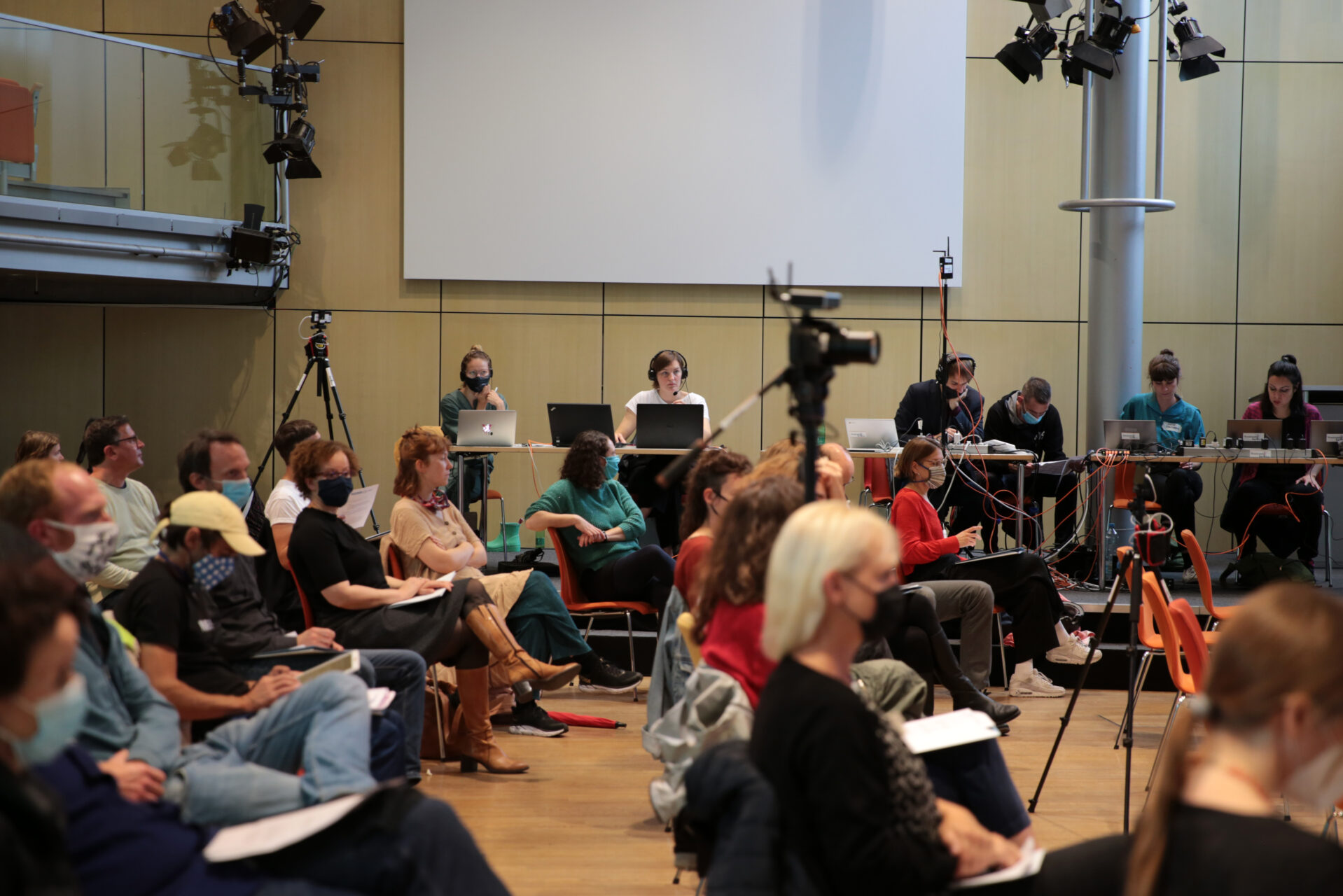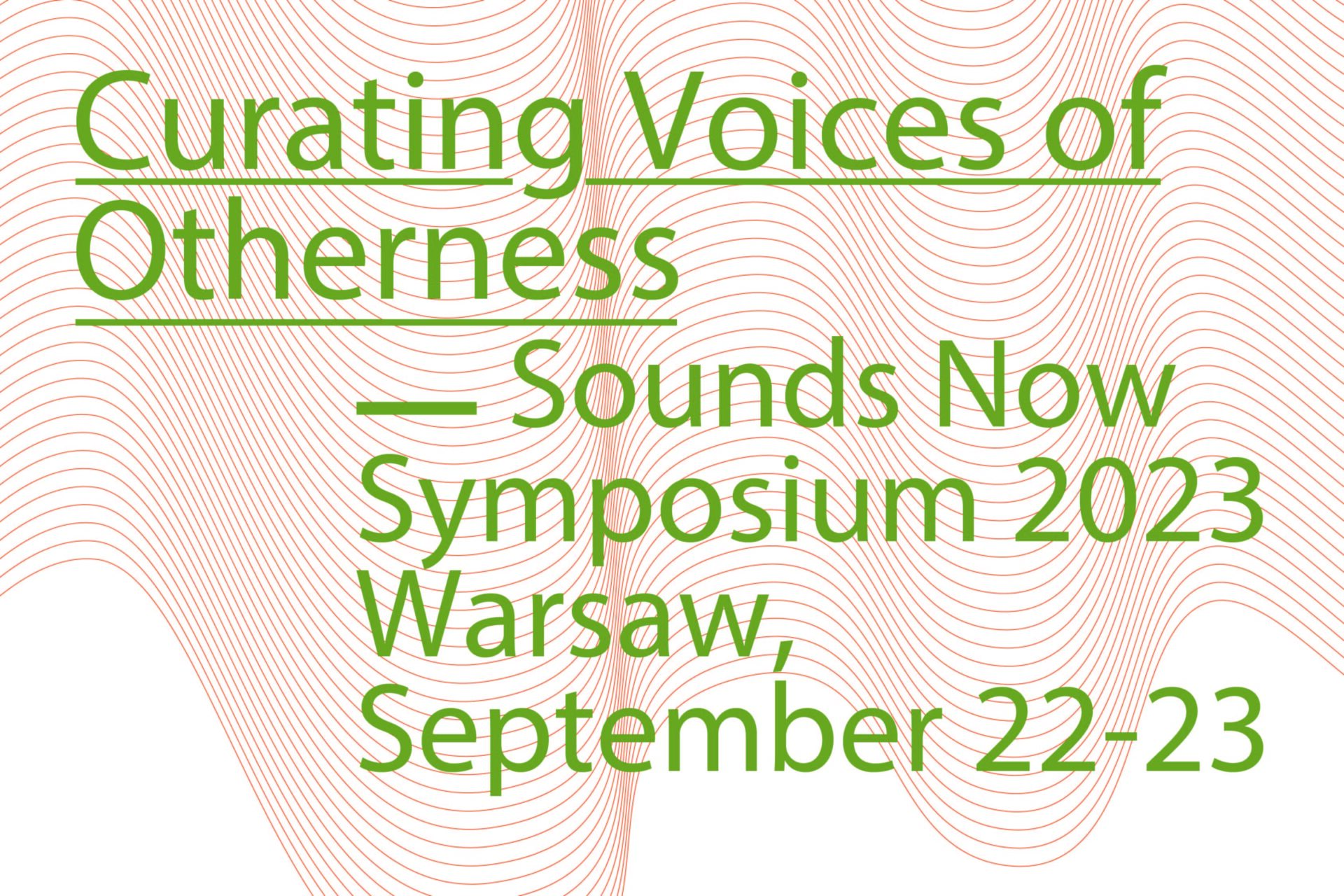
Friday 22 September and Saturday 23 September 2023, 9.30-17.00
Curating Voices of Otherness: Women, non-binary, and transgender persons’ creative resilience in a world of wars, crises, and political turmoil
Register here by September 7
Wars, conflicts, and various crises are never gender-neutral because they affect the whole of society, which is itself not gender-neutral. Those crises, both social and political as well as crises of values, affect women, non-binary and transgender persons in a particular way due to the intersectional discrimination they face, which is based on a combination of various characteristics or identities (migrant or refugee women, non-binary and transgender persons, persons of color or Roma persons, differently-abled persons, persons in poverty crisis, aged persons, non-heterosexual persons, persons with caring responsibilities, and so on). Aside from discrimination, women, non-binary and transgender persons often experience gender-based violence, especially when they find themselves in situations of precarity. Remaining silent is a common survival strategy. Moreover, women, non-binary, and transgender persons’ voices are often brutally silenced. Art seems to be the only language available to be heard. Art, music, and sound become political.
The symposium will be an interdisciplinary discussion (both theoretical and practical) on what it means to curate and create under oppression, facing hostilities and existential precarity. We will share and discuss diverse women, non-binary, and transgender persons’ experiences of facing crises, analyze what difficulties marginalised persons face within the creative sector, and try to understand to what extent their creative participation can be resilient and fluid in situations of emergency. During the two-day symposium, you will meet curators, activists, and artists including Elham Puriya Mehr and Alicja Czyczel amongst others, dealing with the ethics of otherness, with a specific focus on women, trans- and non-binary persons in the contexts of music and sound. Some activities will be conducted in smaller working groups (please, register using the link below), and some will be open to the general public.
+ Venue: Space for Contemporary Music, Hashtag LAB , ul. Barska 29, 02–315 Warsaw, Poland
Programme
FRIDAY 22.09
9.30 WELCOME: Arrival and coffee
10.00 INTRODUCTION: Introducing the concept, the people behind and the ground rules
10:30 INSPIRATIONS: Inspirational presentations and questions
See the Speaker section below for more details on the presentations
+ Elham Puriya Mehr: The Curatorial as an Interface
This lecture concentrates on the curatorial as an interface that amplifies women’s voices in the entanglement of sociopolitical conditions.
+ Olia Diatel: Art is important for community. And what about artists?
War is the time when you think a lot about the future you want to have. This thinking make you realize that this desired future will appear only if you start working on it right away.
13.00 LUNCH – Hashtag Lab
14:00 CONNECTIONS: Sharing thoughts and collaborative writing
15:30 Coffee break
16:00 Glissando Launch with guests: Monika Żyła (moderation), guests: Elham Puriya Mehr and others
17:00 Break and walk to restaurant
17:30 JOINT DINNER
19:30 Concert at Warsaw Autumn: Zubel / Adamczak / Marelli / ORKIESTRA MUZYKI NOWEJ / Bywalec – Hendrich / Stańczyk / Szmytka / Wołek
SATURDAY 23.09
9:30 CHECK IN: Arrival and coffee
10:00 WORKSHOP: Embodied listening workshop run by Alicja Czyczel
When we listen, we experience our body as a porous vehicle related to the environment that surrounds us. How does your body listen? How does it feel? What does listening do to you, to your nervous system, to your breathing? We will dive together into regenerative somatic session through rest, self-touch, experiential anatomy and deep listening.
10:45 THE THING FROM THE FUTURE: A session of radical imaging of the future. You will take part in a game called The Thing from the Future building new worlds and relations.
13.00 LUNCH – Hashtag Lab
14:00 WORKSHOP: Embodied listening workshop run by Alicja Czyczel
14:45 A MANIFESTO OF OPENNESS: Writing a Manifesto of Openness, individually or in groups.
16:30 CELEBRATION AND CLOSING
17:00 Break and walk to the restaurant
17:30 JOINT DINNER
19:30 Concert at Warsaw Autumn: Mukaiyama / Pękala / Bialic / CHÓR I ORKIESTRA FILHARMONII NARODOWEJ / Hermanto / van Koolwijk – Zubel / Balch / Rożynek / Vaughan / Błażejczyk / van Koolwijk
+ Accessibility:
Together with our partners at Hashtag LAB, we make every effort to ensure that our symposium is accessible to all who wish to attend it. If you have special needs and would like to attend an event, please email us at: dostepnosc@hashtaglab.pl.
+ Credits:
The symposium is developed and curated by Monika Żyła (musicologist, writer, and curator), Yulia Lashchuk (researcher and curator), Anne Marqvardsen, and Anna Berit Asp Christensen (artistic directors of Sounds Now partner SPOR festival, Denmark)
Event design and facilitation: Aleksandra Jach
Coordination: Natalia Górecka
+ Questions? Contact natalia@sporfestival.dk
Our Speakers
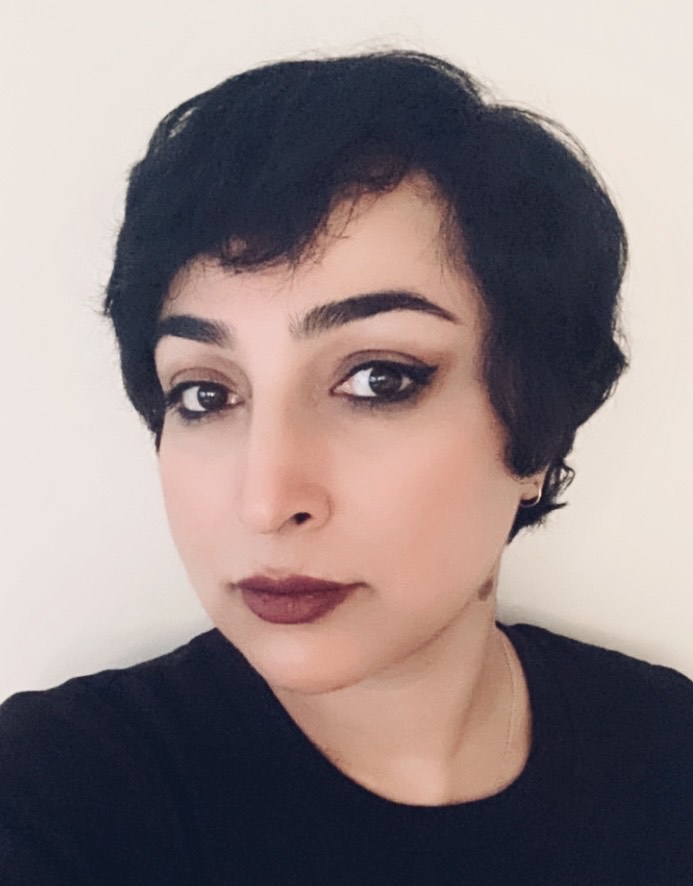
Elham Puriya Mehr is an independent artist, curator, and lecturer based in Vancouver on the territories of the xwməθkwəýəm (Musqueam), skwxwu7mesh (Squamish) and səlilwətaɬ (Tsleil-Waututh) First Nations. She received her BA and MA from Tehran University of Art, Ph.D. in Art Research from Alzahra University and now is a Research Fellow at Advanced Practice in Goldsmiths, University of London. Her research focuses on knowledge production in social contexts and researching through curatorial as a methodology of learning. She has worked internationally as an educator, curator, and writer over the past sixteen years, and lectured in conferences, symposia, and talks in Tehran, Singapore, Amsterdam, Vienna, Calgary and Vancouver. She is a co-founder of Empty Space Studio, a non-profit nomadic platform based in Tehran and Vancouver.
Some words from Elham about her presentation: The Curatorial as an Interface
This lecture concentrates on the curatorial as an interface that amplifies women’s voices in the entanglement of sociopolitical conditions. An active, multiple, and joint agency that possesses potentialities to encourage social relations in the extreme condition of separability. Curatorial abilities visualise invisible interactions and contain rhythm, sound, and embodiment, and acknowledge them as political action.
As a case study, this lecture reflects on the Woman. Life. The freedom movement in Iran as a platform for emancipating voices and bodies. It underlines a curatorial role in its awakening and continuity and raises questions such as: how can the curatorial as an interface slow down or interrupt the predetermined patterns that mute voices? And how does it mobilise the continuation of events in the time of protest?
Originally from Crimea, Olga Diatel currently lives and works in Kyiv. Interested in sustainability of independent cultural institutions, creating, discovering and implementing best practises in this field. Co-founder of proto produkciia agency, gallery Asortymentna kimnata in Ivano-Frankivsk and residency house Khata-Maysternya in Carpathian Mountains from Ukrainian side. Producer in the field of contemporary opera and musical theater and executive producer of 4 Ukrainian operas in the last 4 years. Currently, exploring different formats of residencies and fellowships for upcoming artists – especially for those who’ve decided to stay in Ukraine and continue their practice there.
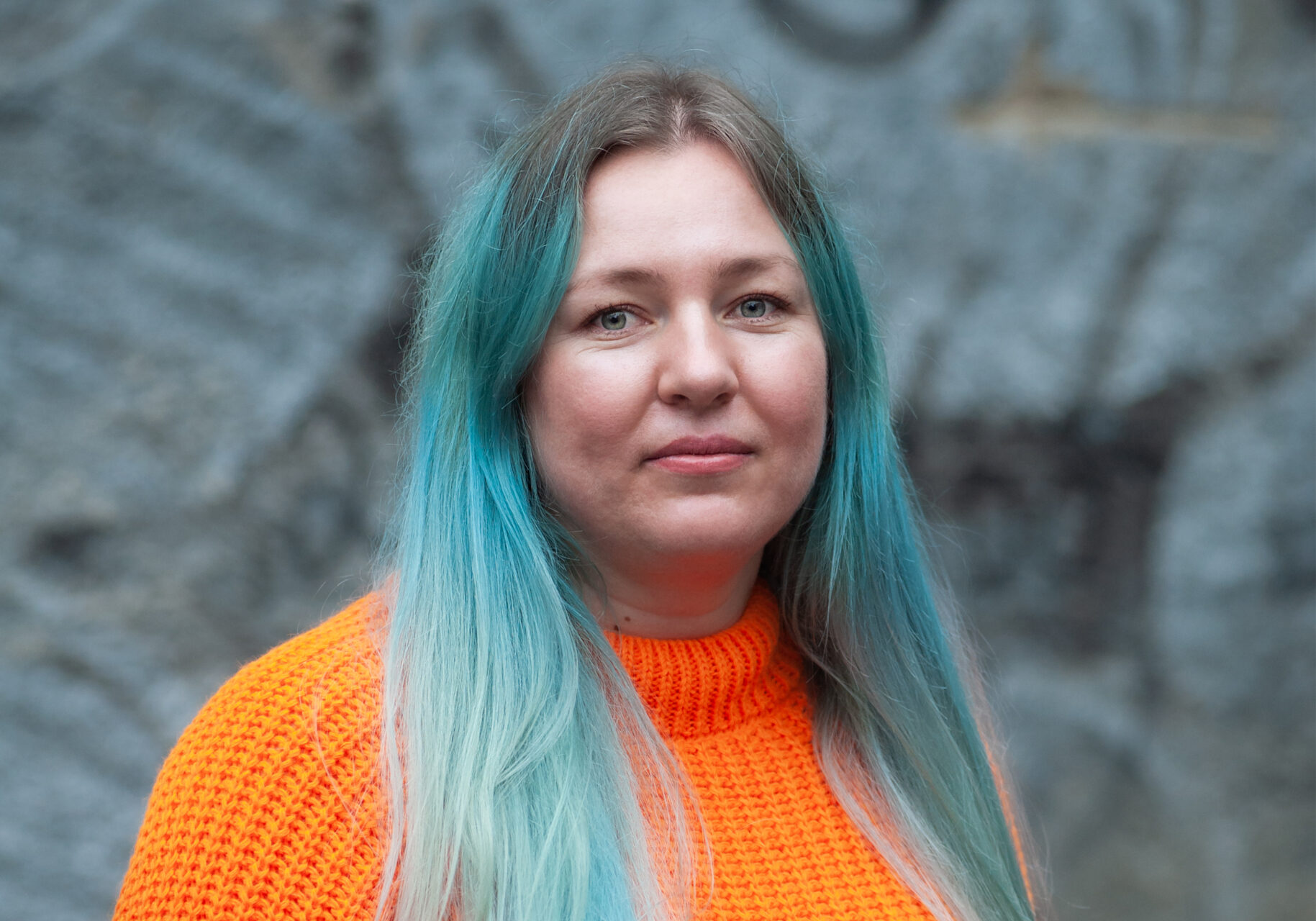
Some words from Olga about the presentation: Art is important for community. And what about artists?
In few days after full scale invasion of Russia to Ukraine, I found myself at our office in the western part of the country. Numerous artists had gathered in Ivano-Frankivsk, drawn there because they knew of our gallery. The gallery and office were crowded by people, looking for a safer space and to understand what to do next. We organised residencies both in the city and our rural space in the Carpathians for artists, fleeing from the war.
Russia’s war against Ukraine started in 2014. That year, I was forced to move from my home in the Crimea region to the western part of Ukraine. There we established a space for events and residencies in the Ukrainian Carpathians. We have run this place many years, but in 2022 it is again able to step up to the ambiguity of the situation and be a ‘safer’ space for those who need it.
A month and half after the full-scale invasion, I returned to my home, which is now in Kyiv. Here we launched the Antonin Artaud Fellowship to support works of performing artists who continue to work in Ukraine. One fellowship was awarded to Anna Vynogradova, a performer who moved from Donetsk in 2014. In 2022 her mother, a former ballerina, also moved to Kyiv from Donetsk region. From her childhood, Anna remembered one dance, which her mother choreographed in her hometown’s Palace of Culture. Anna was amazed with this cultural patchwork consisting of music that nobody could understand because of low knowledge of English, ballerina skills, some costumes found in the wardrobe, and imagination (there were no YouTube or videos to watch and copy). Anna tries to replicate this dance and this process turns into cultural research and intergenerational dialogue, but also the way to find answers for many questions which appear in a situation of crisis.
Situations of crisis, and in particular war, make you feel like a bad (or at least not excellent) student before an exam. Suddenly you realize how many things you wish you could improve in the past. You also definitely know what you can do well and how to use it now. War is also the time when you think a lot about the future you want to have. This thinking make you realize that this desired future will appear only if you start working on it right away.
Alicja Czyczel is a choreographer, educator, facilitator of group creativity processes. In her artistic and social endeavors, she focuses on building a community through practicing collective care and building safe(r) spaces to experience pleasure and embodied knowledge. Czyczel creates stage choreographies, interdisciplinary artistic research projects and sound walks. Co-founder of the Przestrzeń Wspólna (Common Space) Collective. Since 2018, she has been working with the Education Department of the Museum of Modern Art in Warsaw. Her essayistic and poetic texts have appeared in “Dialogue”, “Glissando”, “Playground”. Her works and processes have been shown at the Museum of Art in Łódź, the Zachęta National Gallery of Art in Warsaw, the Aomori Contemporary Art Center in Japan, the Polish Pavilion / Postartistic Assembly at the Gwangju Biennale in South Korea, in the Moczydło Park in Warsaw, on the Opatowicka Island in Wrocław, on the Sobieszewo Island in Gdańsk, in the Wetlands of the Zakole and in the Golędzinów Meadows by the Vistula River.
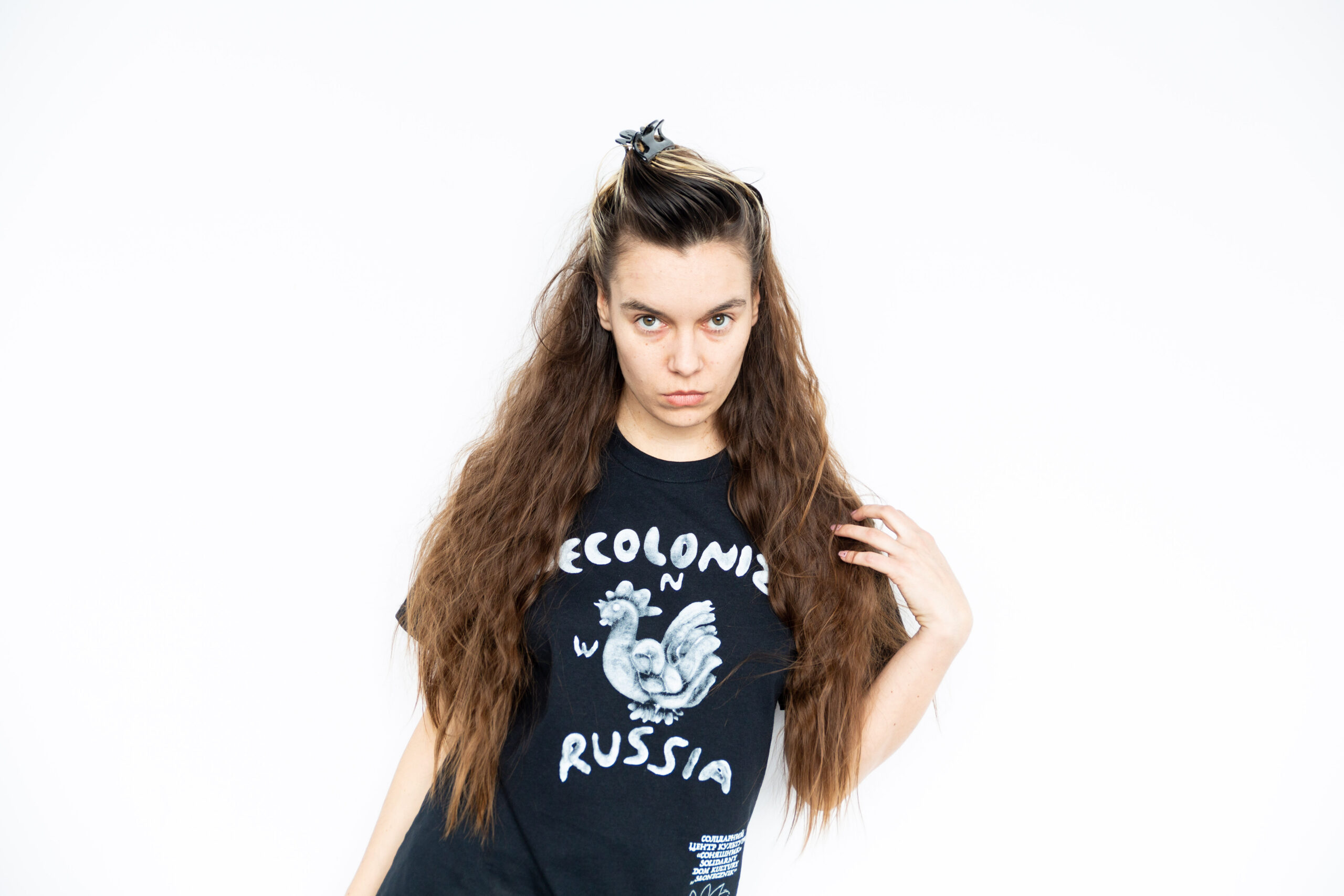
Facilitator
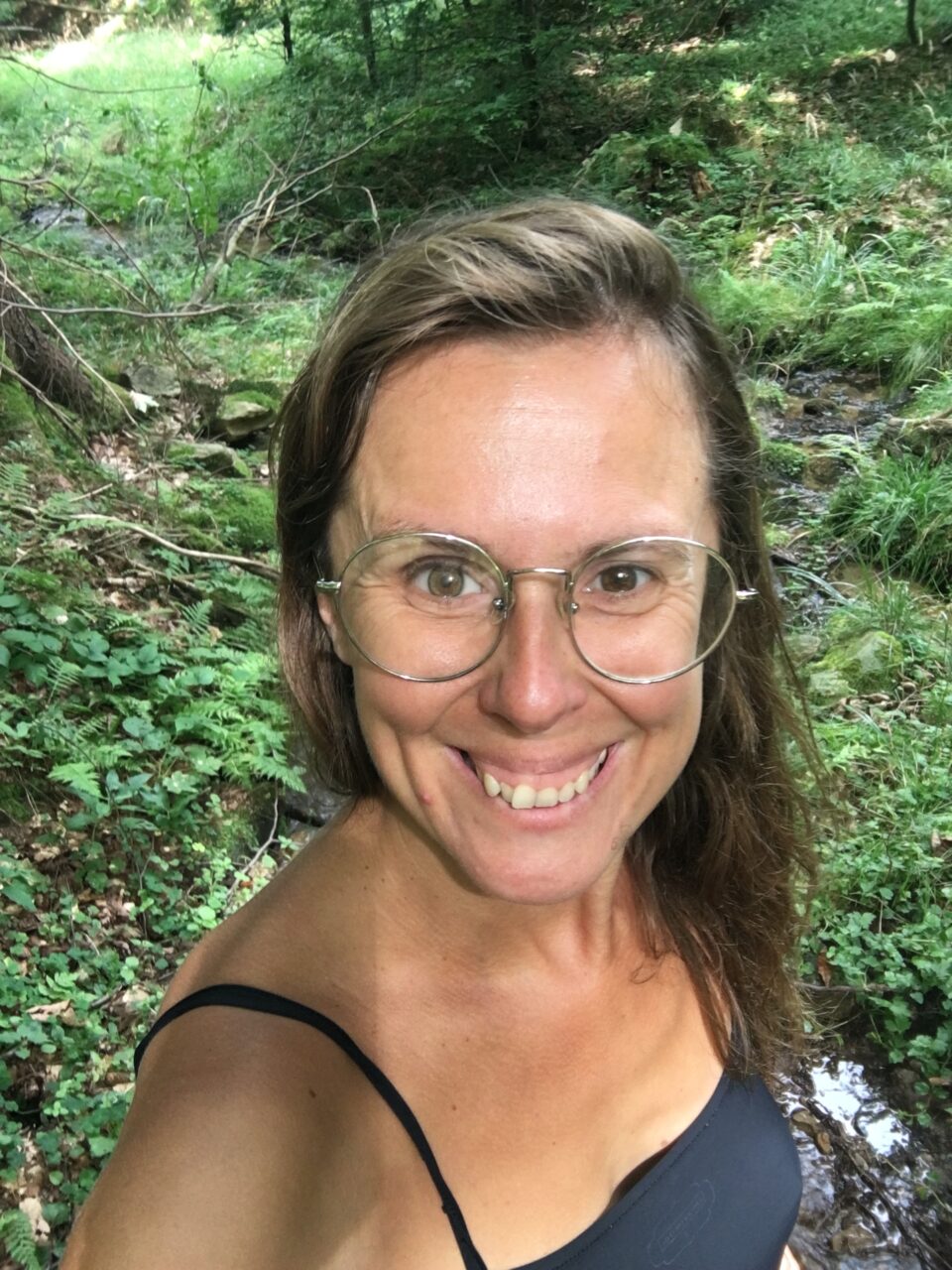
Aleksandra Jach is a facilitator, coach and curator. She works with NGOs, cultural institutions and business. Her main interests are: agile mindset (Scrum, sociocracy), responsibility culture, effective communication, restorative circles, futuring. She believes that most challenges in teams and organizations can be resolved if we start listening to each other. Aleksandra has gained wide experience of collaboration in diverse environments working as a curator (Museum of Art in Lodz, Hamburger Bahnhof, DaaD, among others). She is also an author of many essays and several books on art.
